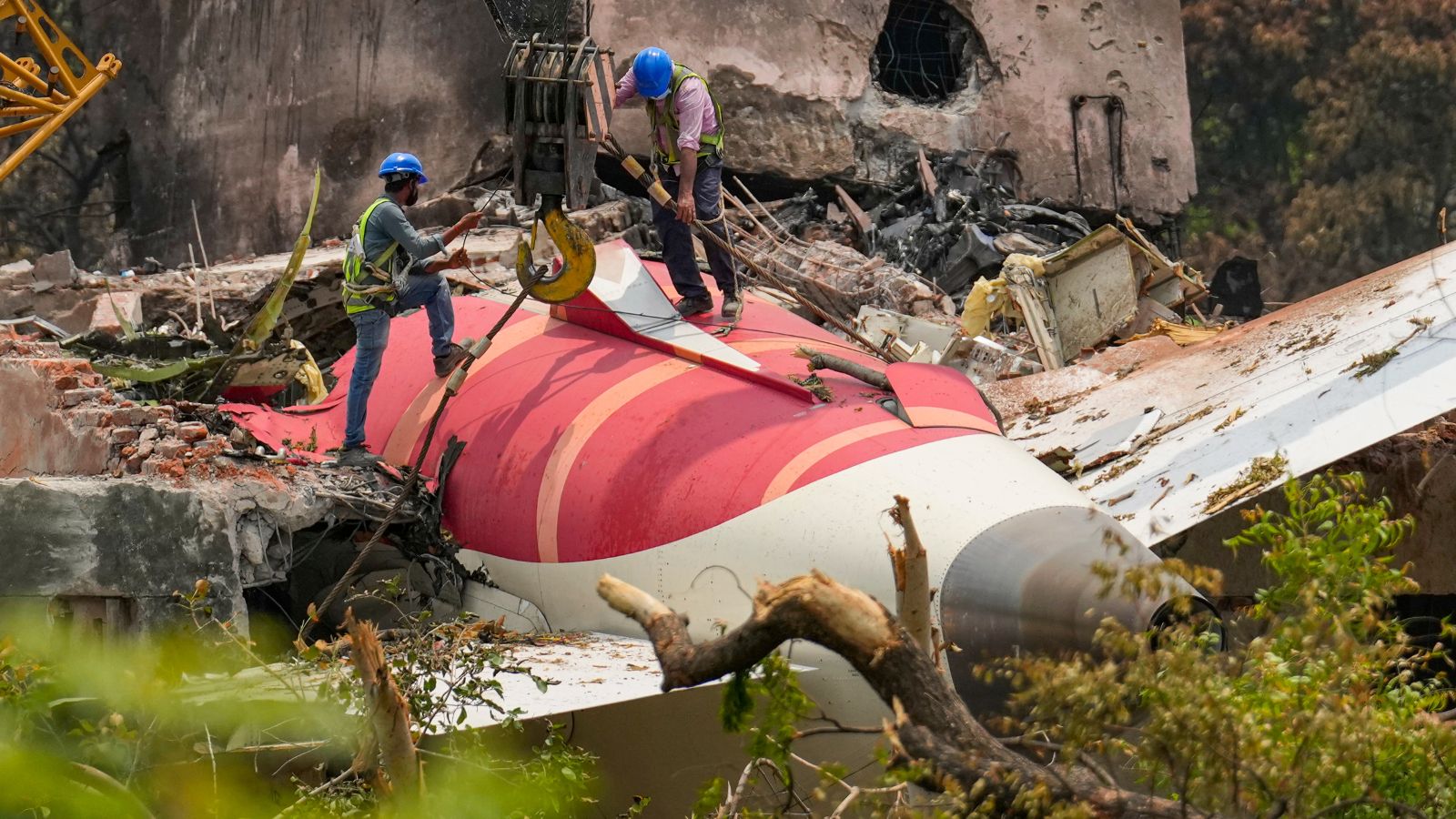ARTICLE AD BOX
Last Updated:June 13, 2025, 11:28 IST
As tensions between Tehran and Tel Aviv threaten to upend regional peace, India is treading cautiously, staying neutral while protecting long-standing interests on both sides

India maintains strategic neutrality as Israel–Iran conflict escalates
With Israel and Iran locked in one of the most dangerous face-offs in recent history, India’s diplomatic playbook is clear: stay neutral, avoid escalation, and protect core interests. From defence partnerships with Israel to energy and connectivity projects with Iran, India’s messaging has been consistent—de-escalation, restraint, and diplomacy.
On June 13, 2025, the Ministry of External Affairs reiterated this approach, expressing deep concern over the situation and reports of attacks on nuclear facilities. It urged both sides to refrain from further escalation and called for the use of existing diplomatic channels to resolve tensions. Emphasising its close and friendly ties with both Israel and Iran, India stated that it stands ready to offer any possible support. The government also confirmed that Indian missions in both countries were in touch with local communities and advised Indian nationals to remain cautious and follow local security advisories.
How India Has Framed Its Position On The Israel–Iran Conflict
Over the years, India has developed a well-defined template: one that reflects strategic neutrality, avoids public alignment, and foregrounds its core interests — peace, stability, and the safety of Indian citizens abroad.
Consistently Neutral, Deliberately Measured: Whether responding to the 2012 New Delhi bombing, the 2021 Gaza war, or the 2024-25 missile exchanges, India has avoided naming either party as the aggressor. Its official language has remained consistent:
- “We are deeply concerned at the escalation of hostilities"
- “We urge all sides to exercise restraint"
- “There is a need to return to the path of diplomacy and dialogue"
Such phrasing is not accidental. It allows India to maintain equidistance, essential when navigating strategic ties with Israel and deep-rooted connectivity with Iran.
Condemnation Without Attribution: In 2012, when an Israeli diplomat’s car was bombed in New Delhi — a case that Israeli authorities publicly linked to Iran — India condemned the incident as a “terrorist attack" and launched an investigation. But it stopped short of naming Iran, reflecting a conscious choice to avoid public attribution.
A similar pattern was seen during the 2021 Israel–Hamas conflict. India condemned violence from all sides, including Hamas’s rocket attacks, but simultaneously urged Israel to ensure civilian protection, balancing its evolving defence relationship with Israel and its longstanding support for Palestinian statehood.
Positioning As A Responsible Stakeholder: In the 2024-25 escalations, India’s statements began to shift subtly from just neutrality to active concern for regional stability. The MEA didn’t just call for restraint, it also positioned India as a country invested in peace: “We are seriously concerned at the escalation… and urge all parties to avoid further destabilisation of the region." – Ministry of External Affairs, April 2024
This framing aligns with India’s aspirations to be seen as a stabilising power in West Asia — not just a passive observer but a credible regional actor.
Focus On Citizens: India’s immediate focus during any regional conflict has consistently been the safety of its diaspora. In every flare-up, the Ministry of External Affairs has responded swiftly, issuing travel advisories, maintaining close coordination with embassies, and steering clear of ideological posturing.
The pattern held true again today. The Indian Embassy in Israel issued a fresh advisory on Friday, urging Indian nationals to remain cautious and adhere to safety instructions.
In a post on X, the embassy stated: “In view of the current situation in Iran, all Indian nationals & persons of Indian origin in Iran are requested to remain vigilant, avoid all unnecessary movements, follow the Embassy’s Social Media accounts & observe safety protocols as advised by local authorities."
⚠️ADVISORYIn view of the current situation in Iran, all Indian nationals & persons of Indian origin in Iran are requested to remain vigilant, avoid all unnecessary movements, follow the Embassy’s Social Media accounts & observe safety protocols as advised by local authorities.
— India in Iran (@India_in_Iran) June 13, 2025
Quiet Diplomacy Over Public Posturing: Unlike other major powers, India rarely offers to mediate publicly or intervene visibly. But its actions, maintaining channels with both Israel and Iran, facilitating backchannel dialogue, and engaging Gulf players, show it prefers quiet influence over declarative diplomacy.
This posture allows India to speak to both sides without alienating either — a calculated positioning that keeps its options open across West Asia.
India-Israel Ties: A Strategic Pillar
India’s relationship with Israel has grown rapidly over the last decade, especially in defence, intelligence, and technology. Israel is one of India’s top defence suppliers, providing drones, radar systems, missiles, and more. Notably:
- India has purchased the Barak-8 air defence system, jointly developed by Israel Aerospace Industries and DRDO.
- India has also acquired Heron and Hermes drones, which are used extensively for surveillance and targeted operations.
In October 2023, following the Hamas-led attack on Israel, India condemned the assault in strong terms and expressed solidarity with the Israeli people, a rare departure from its traditionally neutral tone in West Asia conflicts. Prime Minister Narendra Modi and PM Benjamin Netanyahu have spoken multiple times, including in September 2024 when Modi called for calm and emphasised India’s support for Israel’s right to self-defence, while also urging restraint.
Why India Won’t Alienate Iran
Despite the growing closeness with Israel, India has reasons to stay engaged with Iran. Foremost among them: the Chabahar port.
In May 2024, India signed a 10-year agreement with Iran to develop and operate the Shahid Beheshti terminal at Chabahar. The deal, between Indian Ports Global Ltd and Iran’s Ports and Maritime Organization, is a key component of India’s connectivity strategy for Central Asia and Afghanistan, crucially bypassing Pakistan. It also includes plans to expand port infrastructure and integrate operations with the International North-South Transport Corridor (INSTC).
Iran has also historically been one of India’s major crude oil suppliers. While direct imports have sharply declined due to US sanctions, limited backchannel energy trade has continued.
Security cooperation too remains in play, albeit quietly. In May 2025, National Security Advisor Ajit Doval held talks with Iran’s top security official, Ali Akbar Ahmadian, during which both sides agreed to explore regional cooperation on counter-terrorism and maritime safety. The meeting reaffirmed that high-level strategic contact between New Delhi and Tehran continues, despite the heightened Israel–Iran tensions.
The Israel-Iran Conflict: Why It Matters To India
The escalating conflict between Israel and Iran is more than a distant geopolitical flashpoint, it has direct economic and strategic implications for India. With over 85 per cent of its crude oil imported, much of it sourced through or near the Gulf, India is acutely vulnerable to disruptions in energy supply and pricing. Any military escalation in the region — especially near critical shipping lanes like the Strait of Hormuz — risks pushing up oil prices, widening India’s current account deficit, and fuelling imported inflation.
Beyond energy, the conflict could strain India’s balancing act in West Asia. While India has deepening strategic ties with Israel, it also relies on Iran for regional connectivity, particularly through the Chabahar port and the International North-South Transport Corridor (INSTC). A prolonged conflict could complicate both diplomatic engagement and logistics on that front.
Most critically, instability in West Asia also threatens the safety of over nine million Indians working across the Gulf region, making regional peace not just a foreign policy priority but a domestic imperative.
How Israel–Iran Conflict Impacts The World
West Asia is home to some of the world’s most critical energy corridors, and any disruption—especially near the Strait of Hormuz—could jolt global oil and gas supplies. Brent crude prices have already reacted to initial strikes, and a prolonged war risks triggering an energy shock that would ripple across economies still recovering from the effects of the Russia-Ukraine conflict and post-pandemic inflation.
The conflict also threatens to widen fault lines among global powers, with the US, Russia, and China pursuing competing interests in the region. Escalation could draw in non-state actors like Hezbollah and expand violence across Lebanon, Syria, and Iraq, stretching regional stability to the brink. For global markets, a wider war means higher energy costs, flight to safe-haven assets, increased military spending, and prolonged volatility at a time when economic sentiment remains fragile.

Karishma Jain, Chief Sub Editor at News18.com, writes and edits opinion pieces on a variety of subjects, including Indian politics and policy, culture and the arts, technology and social change. Follow her @kar...Read More
Karishma Jain, Chief Sub Editor at News18.com, writes and edits opinion pieces on a variety of subjects, including Indian politics and policy, culture and the arts, technology and social change. Follow her @kar...
Read More
- Location :
- First Published:
News explainers Tied To Both, Siding With Neither: Where India Stands On The Israel–Iran Conflict



.png)
.png)
.png)
















 6 days ago
8
6 days ago
8








 English (US) ·
English (US) ·